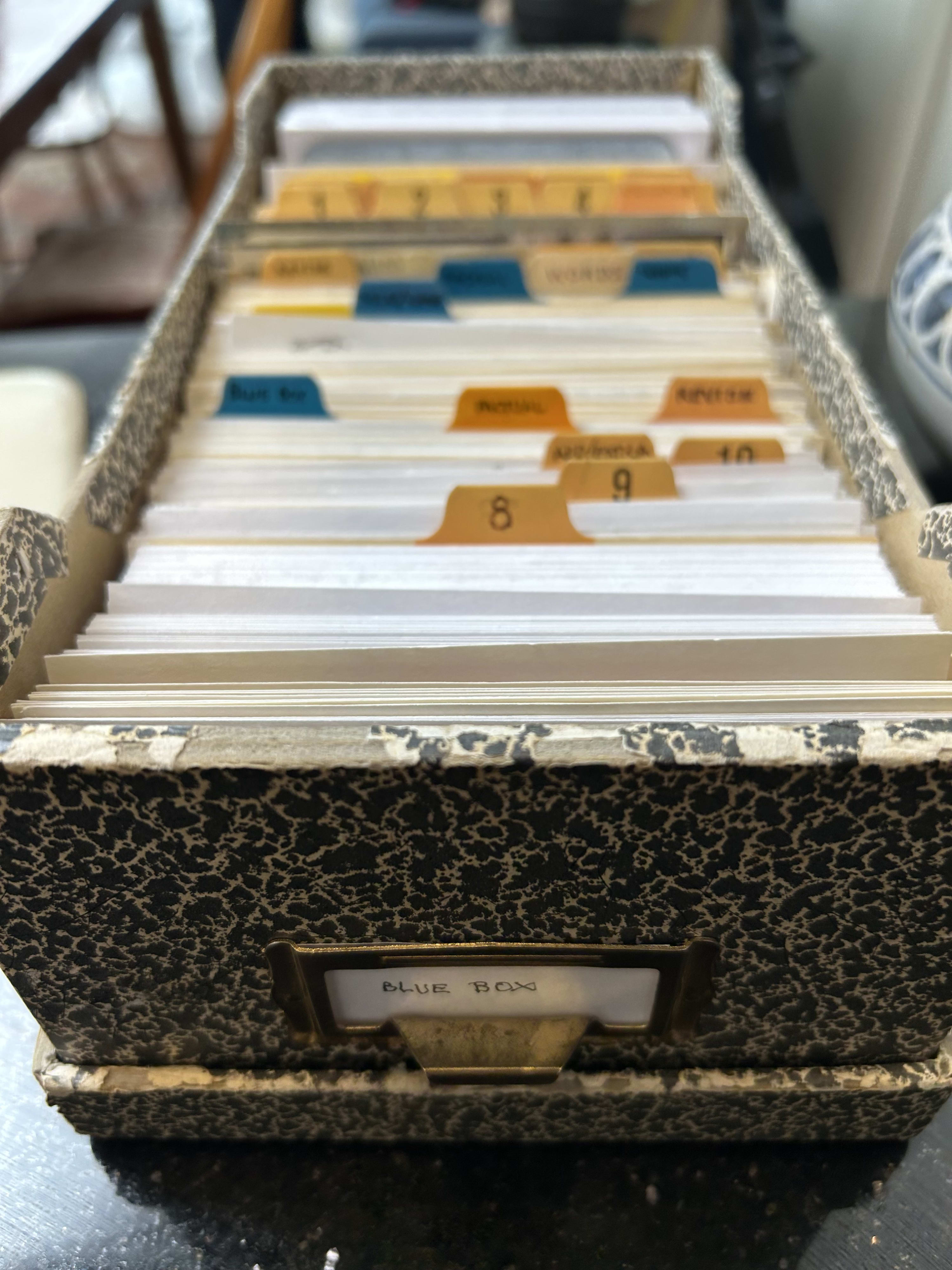Blue Box
My first novel, I see, was published in 1964. (I just double-checked that, because it was so long ago that I thought I might have it wrong.) My latest was published in 2025.
This means that my index card box, where all my books originate, has been around for sixty-some years.
Not that it’s always been the same box. The first was the small metal kind that you find in most kitchens, repainted royal blue to cover up the word Recipes that once sprawled in lacy script across the lid. Eventually, though, my stash of index cards outgrew it. Plot ideas, possible titles, a snatch of mysterious dialogue overheard while grocery-shopping... Finally I had to buy a bigger box, this one fully twelve inches long and made of black-and-white speckled cardboard. Although the label that I slipped into the brass frame on the front reads Blue Box, for continuity’s sake.
My procedure when I begin a novel is, first of all, to go through that box. First, not second. I don’t first get an idea and then consult my index cards to flesh it out. Instead I start with nothing but the vague sense that I really would feel happier to be writing a novel right now, except I don’t have the slightest notion what that novel would be about. So I plow through the cards from front to back, some more than sixty years old. And while I may have passed up a certain card repeatedly over the decades, this time I’ll pause and think, Wait! and pluck it out. I’ll end up with maybe ten or twenty cards, some of which will eventually go back into the box. Others stay out. Who can say why, or what makes me feel that I can use those now when I couldn’t use them earlier?
The weird thing is that often, after I’ve written a book, I’ll glance back at some crucial index card and find almost no connection between that card and the final product. For instance, Three Days in June took shape from a card reading: Bossy aunt introduces awkward niece to equally awkward son of a friend, and niece realizes he’s awkward because he doesn’t really care about other people—NOR DOES SHE. Well, there’s no bossy aunt in Three Days in June, and there’s no awkward son of a friend. And while my central character does seem a bit blunt at times, she clearly cares about other people. So how did we get from that card to this book?
The fact is, I suspect, that the purpose of my index cards is to remind me that outside of my office (which these days is no more than a kitchen table and a stack of paper and a Uni-Ball pen) lie endless possibilities for human interaction. No two marriages are the same, no two parent-child relationships, no friendships. I might open that box convinced that however much I’d like to be writing, I have nothing anymore to write about—but then it seems those cards are all but jumping up and down and squealing for my atttention. “Listen to this!” they say, and “You’ll never in a million years guess what!” and all at once, I’ll feel rich.
Ideally, one day I will use up the very last one of my cards while writing my very last book, and then I’ll drop dead. I would like that. But I’m not expecting things to proceed so tidily. (After all, I do still keep adding more cards.) Maybe I should will them to someone—some young writer just starting out. We can be sure that he or she would never actually use them. They’d just leaf through them from time to time and think, Shucks, this is not the least bit interesting. However . . . oh, I know what! I’ve just now thought of something!
And they would be off and running.

